To build or to buy?
For professional woodworker Nancy Hiller, it's cheaper to buy a workbench than it is to make one.

Every so often a visitor to my shop remarks “Nice bench. Did you make it?” No, I say; I had it made by Benchcrafted. A look of puzzlement crosses the visitor’s face, as though he or she is wondering What kind of woodworker buys a bench instead of building it for herself?
Answer: a professional.
Could I have built my own bench? Of course. My secondary bench is one I built in 1989. It’s sturdy and has a good Record vise that’s now 30 years old. But as I’ve followed the bench-building exploits of Christopher Schwarz and others, I’ve thought about making a better bench for my shop. And yet I’ve never done so. Why? I’d rather spend my best hours on jobs for clients. Those tables, chairs, kitchens, and bookcases are my livelihood.
If you run a bona fide business, the tools and equipment you buy for business use are tax-deductible according to federal and state laws. As I reviewed my bookkeeping records toward the end of 2018, I realized I could afford to order one of the benches I had coveted. Not only would I get a bench with a vastly superior vise and other work-holding features; I would also be doing my part to support a business I’ve long admired. Spending money on a quality workbench (or any other well-crafted piece of equipment) doesn’t have to be viewed simply in terms of cash outflow; it can also be seen as supporting our fellow craftspersons. Other enviable workbenches are made by Frank Strazza and Mark Hicks, who also sells shavehorses.
And there are other furnishings you might consider buying if you’ve been planning to build them, yet haven’t found the time. Several appear on the Benchcrafted site; the MagBlok is one of my favorites for keeping tools handy. As someone who thrives on color, I’ve drooled over the spectrum of milk-painted tool chests made by Megan Fitzpatrick. Megan not only teaches classes on building the Dutch tool chest and Anarchist’s Tool Chest made popular by Chris Schwarz, but also builds chests to custom dimensions with customized interior fitments.
Anyone familiar with my writing knows that I do my best to correct the many fantasies and misperceptions surrounding what it means to make a living as a woodworker. The matter of whether a “real professional” builds or buys shop fittings such as those mentioned here is just another piece of that picture.
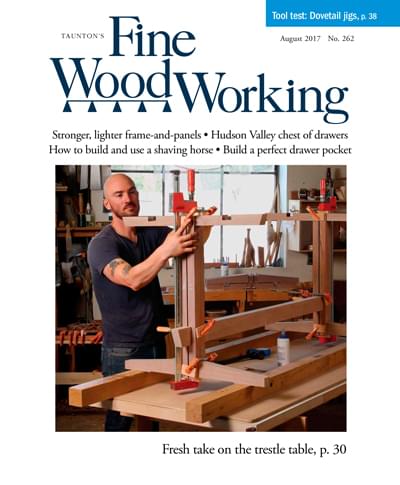







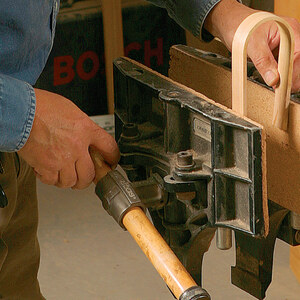
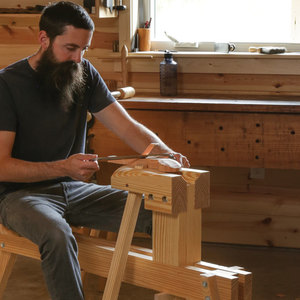

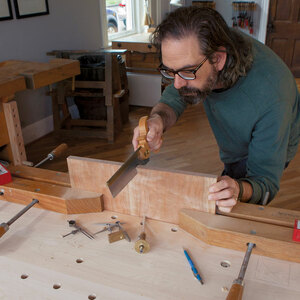












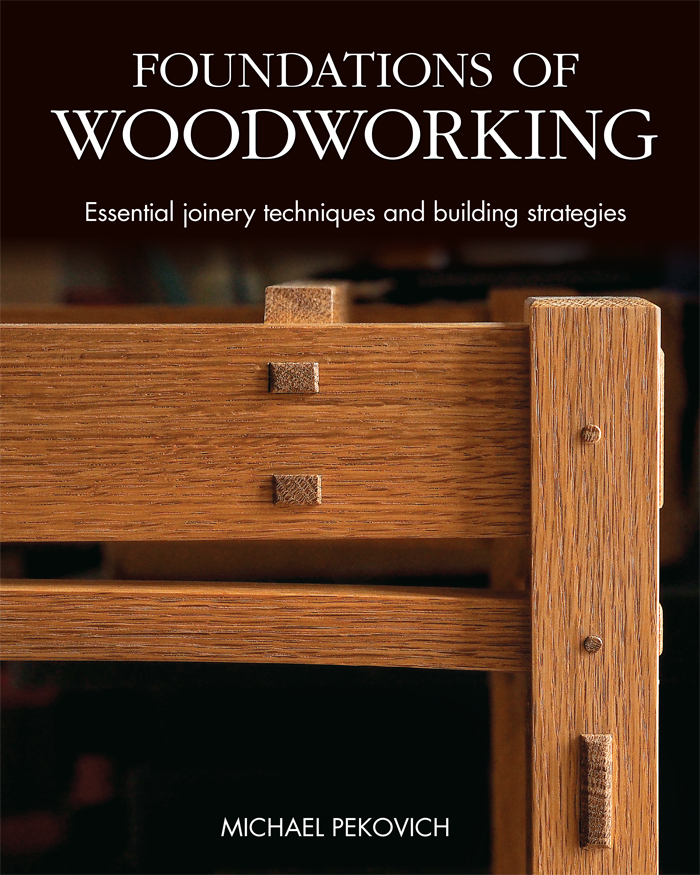

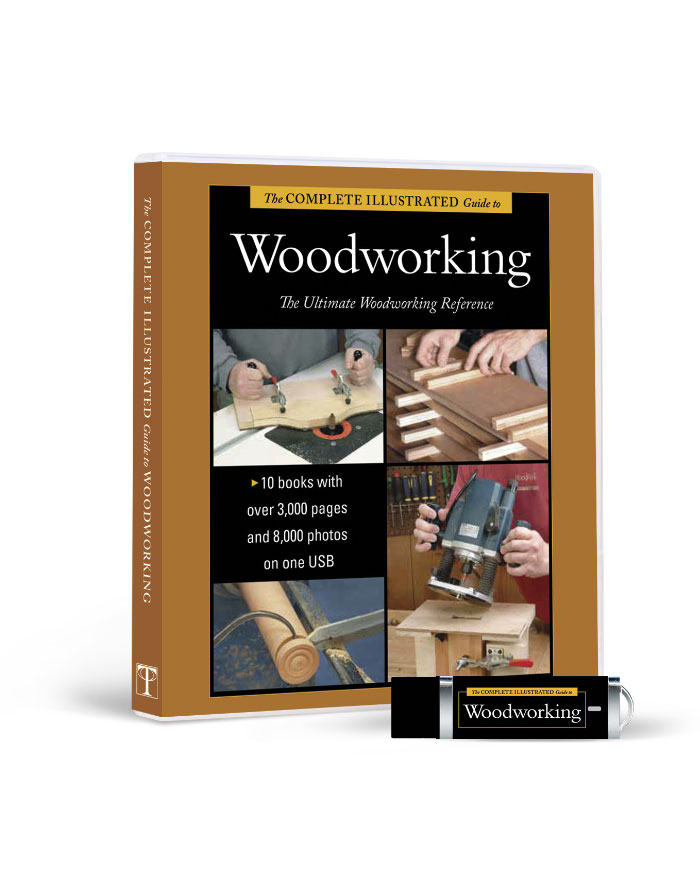





Comments
Agree on this also. Having built 2 workbenches early on in my furniture making career, I later decided to purchase 2 larger "factory-made" workbenches in addition to the small shop-built workbenches. At this point, my time was better spent designing + making furniture. Also these 2 workbenches are identical in bench hole spacing, offsets from edge, etc. I can interchange bench jigs between them without issues. This was an important criteria for the 2 newer workbenches. There is no telling if the interchange would have worked had I built 2 custom workbenches with the precision involved. Cheers, Norman.
Ms Hiller's comments make perfect sense. One simply has to calculate whether the time spent making a bench (while not making money) is worth the cost of the bench in comparison to the money earned during the time it would take to make the bench.
For a professional, time IS money, to a considerable degree -- and good benches take a lot of time to make well.
For the average woodworking hobbyist, making a bench is cheaper than buying one because their woodworking labor would not otherwise be bringing in an income greater than the cost of the bench. In effect, the hobbyist can discount their own time, whereas a professional cannot.
Further, most hobbyists can afford their time more than they can afford a good bench. A well-to-do hobbyist could also simply buy a nice bench, for they can afford NOT to discount their own time in making the bench.
The decision to make or buy a bench is not entirely an economic decision for most woodworkers, but it is for most professional woodworkers.
One thing worth remembering, too, is that workbenches made by reputable companies, like Benchcrafted or Lie-Nielsen, for example, are an excellent value for the money. They are immediately functional, they will work beautifully for generations, and they will become woodworking heirlooms.
Each person makes their own call on this one.
What happended to your bench on the floor? (a la instagram post)
Yep, it's great to have the professionals who have had the dedication and tenacity to make a living at this weigh in to help others who might be considering the realities of such a noble path. For us amateurs, the calculus is quite different. I just spent around 300 hours and $1500 on materials to build the split-top Roubo bench of my dreams. To me, it was worth every penny and minute spent; a immensely pleasurable challenge to build and a joy each time I use it, but total folly were I trying to make a living with it.
This makes perfect sense. I am assuming you didn't build your tablesaw, bandsaw, jointer and planer. The bench is a tool. If you had the time to build it, great. But it makes good sense to buy one, especially the one you bought. I'm envious!
Building my bench as time allows, I appreciate the professional v. hobby perspective as there is value in both approaches. For me personally, working the wood is the essence behind the passion which fuels my creative interest.
Log in or create an account to post a comment.
Sign up Log in